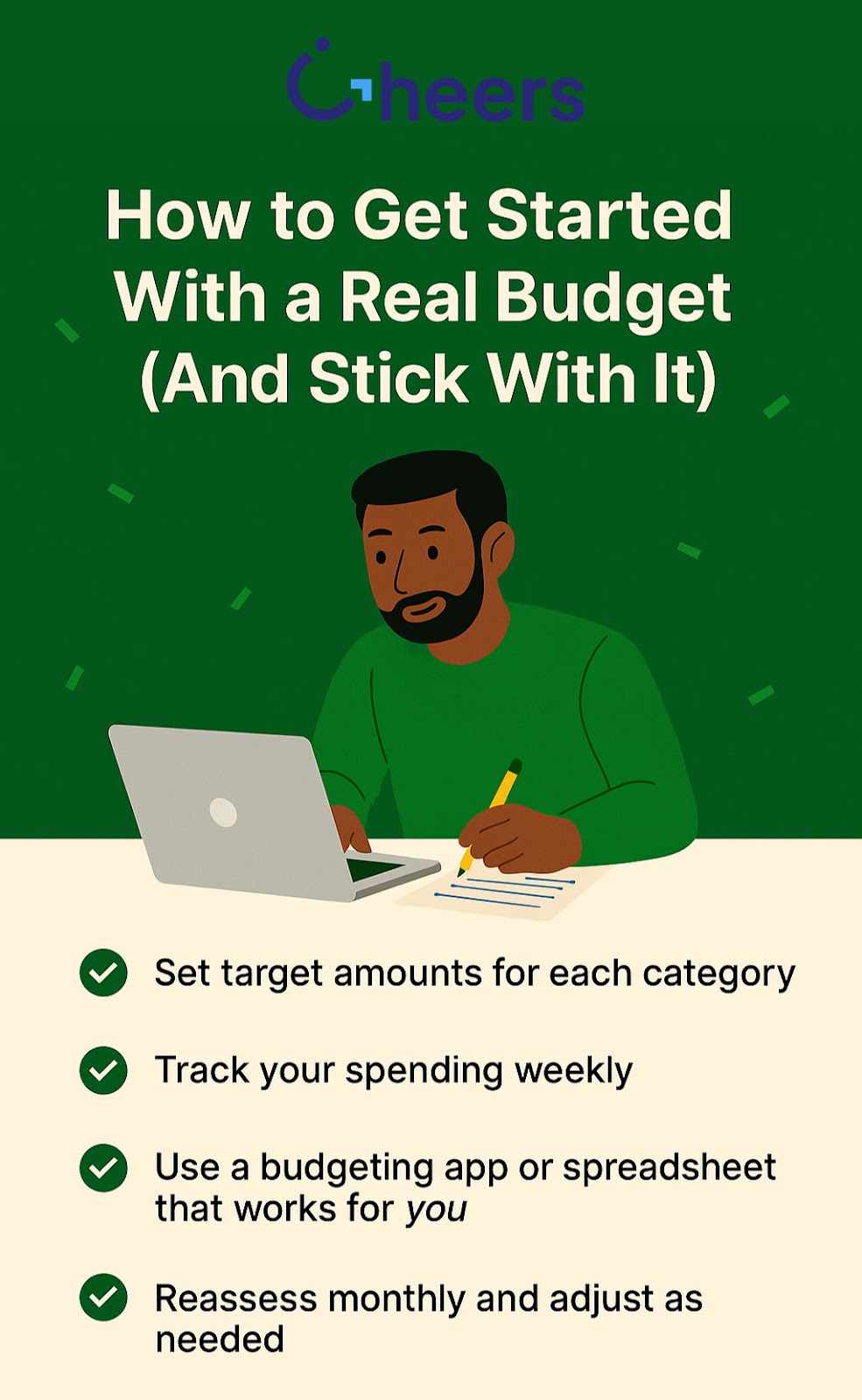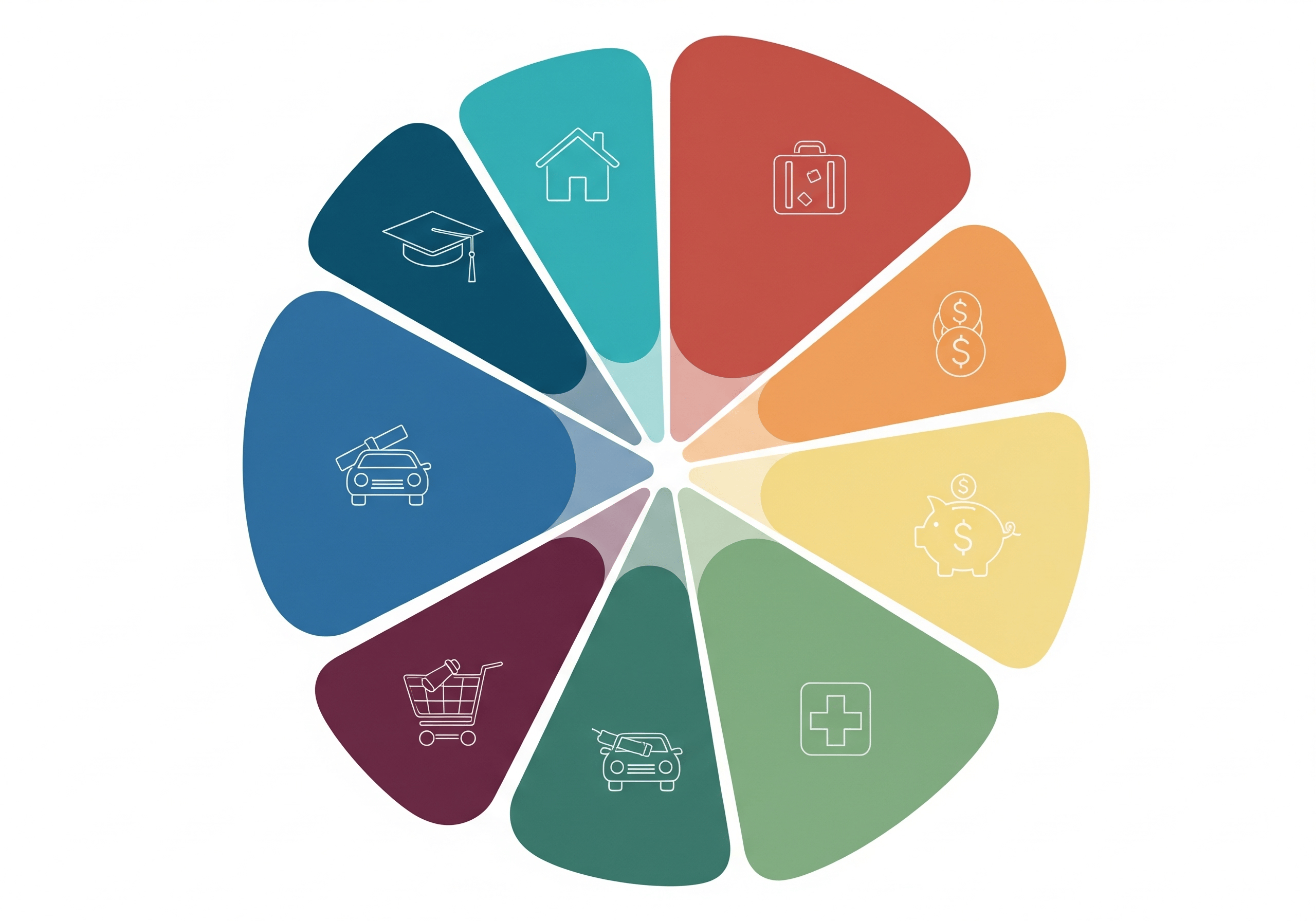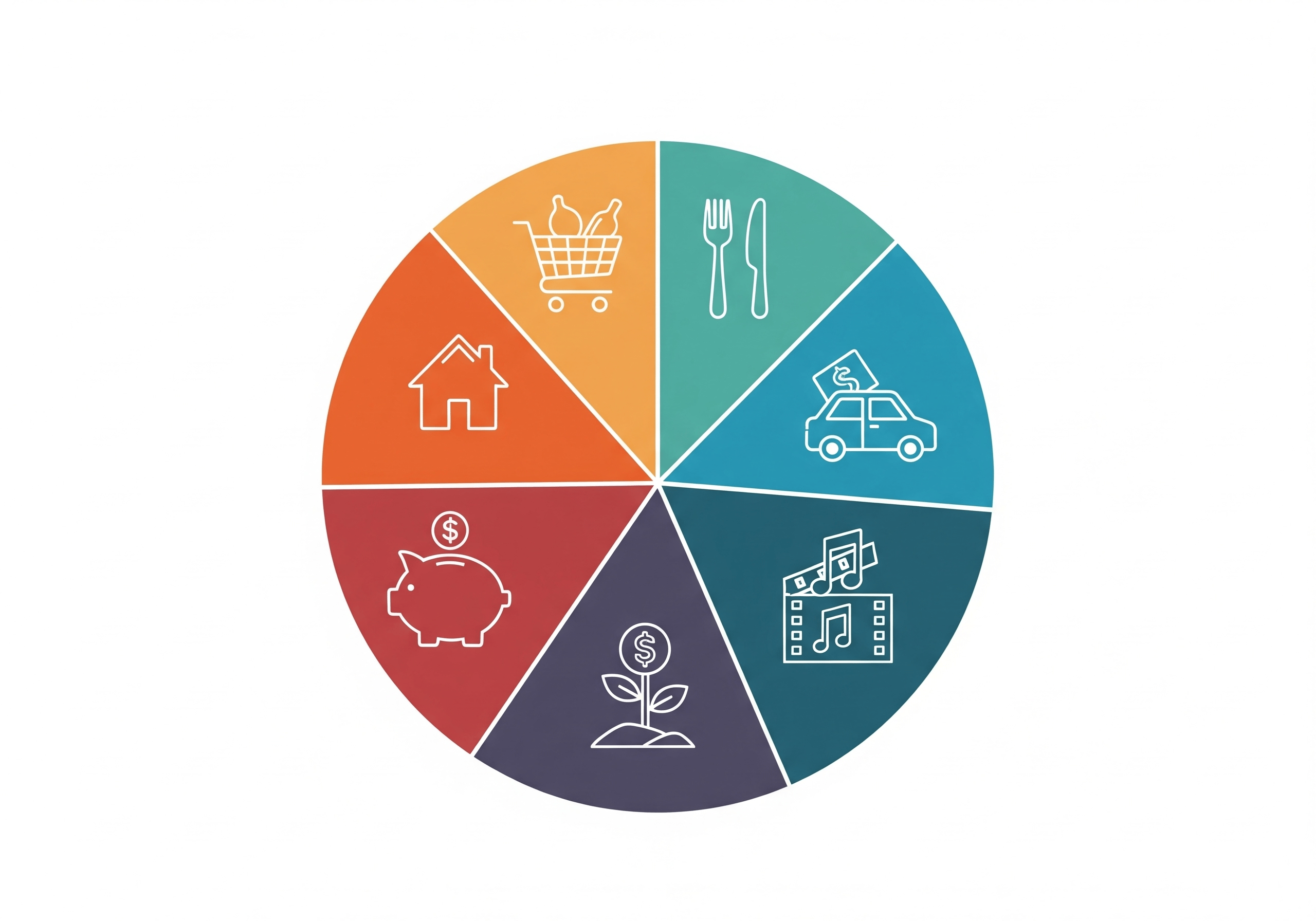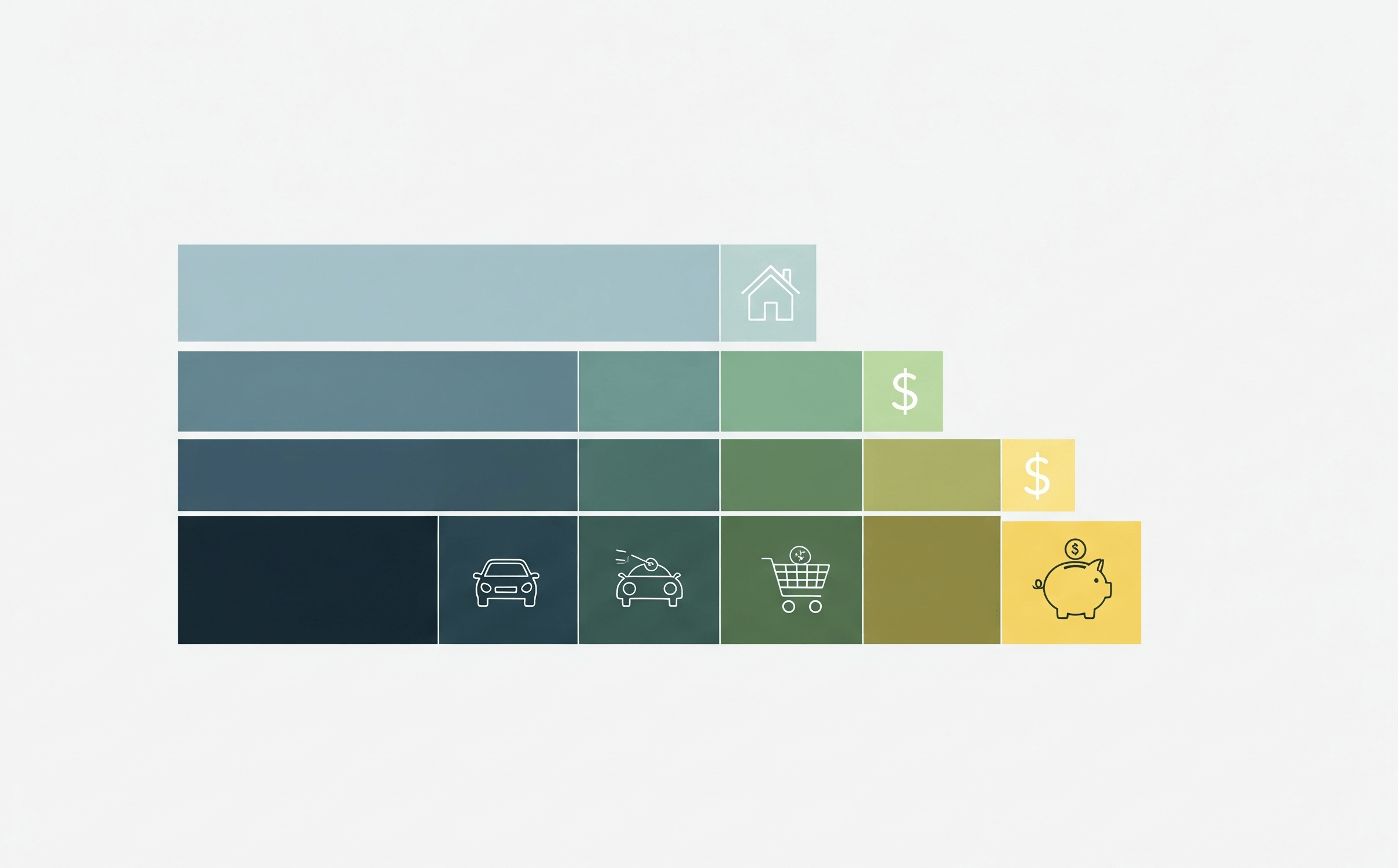Building a budget isn't just about watching your bank balance-it's about knowing where your money's going before it disappears. The most effective budgets break spending into clear, purposeful categories so you can track what matters, adjust what's not working, and plan for goals such as debt repayment or credit building. In this guide, we'll walk you through the 12 essential budget categories that every financial plan should include, from rent and groceries to savings, childcare, and debt repayment. You'll see why categorizing your expenses gives you more control, how to build a plan that works for your life, and how budgeting intentionally can support credit-building goals-especially when paired with a tool like Cheers Credit Builder.
Why Breaking Your Budget into Categories Works
Budgeting feels overwhelming when it's too vague. Categorizing everything into "expenses", you can overlook some patterns that you can accommodate for. Categorized budgets let you:
- Understand what you're spending
- See where you can cut back without sacrificing everything
- Build a sustainable plan, not just a temporary fix
And if your goal is to build credit, these categories can help you make room for on-time payments, debt management, and savings that make a real difference over time.
The 12 Essential Budget Categories You Should Track
Housing
Your rent or mortgage is often your most significant monthly bill. This category should also include property taxes, insurance, and maintenance. Experts suggest that housing should be no more than 30% of your income, but in many cities, it's much higher; therefore, this is often the first category to examine for flexibility.
Utilities
Electricity, water, trash, gas, and internet fall under this category. These costs can fluctuate seasonally, so tracking them helps you prepare for higher expenses in certain months.
Groceries
One of the easiest categories to overspend in, especially without a plan. According to recent data from the Bureau of Labor Statistics, grocery prices continue to rise, and many families are turning to meal prepping or shopping at discount stores to stay on budget.
Transportation
This includes gas, car payments, insurance, registration, maintenance, and even public transit passes. With gas prices still unpredictable, this category can swing quickly without notice.
Debt Payments
Credit cards, personal loans, and student loan payments live here. Even if you're just making minimum payments, this category is non-negotiable. Paying on time also protects your credit score, which is where tools like Cheers Credit Builder come in.
Savings
Whether it's for an emergency fund, a short-term goal, or retirement, savings should be categorized. Automating it, even with small amounts, makes it more consistent.
Insurance
Health, life, dental, disability, and other types of coverage can be easy to forget since some only come up annually. Keeping them in your budget ensures you're prepared when renewals hit.
Health & Medical
Copays, prescriptions, and out-of-pocket expenses are often overlooked in monthly budgets until they become emergencies. Even if you're healthy, budgeting a small monthly amount here creates a cushion.
Personal Spending
Haircuts, skincare, clothing, hobbies-it all adds up. Instead of pretending it won't happen, permit yourself to spend within reason. When you plan for it, it doesn't feel like a setback.
Entertainment & Subscriptions
Streaming services, gym memberships, concerts, and outings. This category often offers the most flexibility when you need to make cuts, but it also makes life enjoyable, so don't skip it entirely.
Gifts & Giving
Holidays, birthdays, weddings, and charitable donations all fall under this category. These aren't monthly expenses, but setting aside a small amount year-round prevents big hits to your budget later.
Pets & Childcare
If you have kids or pets, their expenses deserve their category: diapers, vet bills, school supplies, sitters, and grooming. These costs are predictable, even though they fluctuate from month to month.
Why Budgeting Helps You Build Credit (Not Just Savings)
A categorized budget isn't just a tool for saving-it's a system that helps you pay bills on time, avoid overdrafts, and make room for things like credit builder loans.
If you're trying to establish or improve your credit, your payment history is the most significant factor in determining your score. With a structured budget, you can allocate space for small, monthly payments that are reported to the credit bureaus. And that's where Cheers can help.
Cheers Credit Builder is designed to help you build credit while you save. There are no monthly or admin fees-just a low 1% APR. You choose a plan, make monthly payments, and Cheers reports those payments to all three credit bureaus. Over time, that payment history may improve your credit profile while you accumulate savings in an FDIC-insured account.
How to Get Started With a Real Budget (And Stick With It)
Budgeting doesn't have to be perfect. It just needs to be honest. Start with the last 90 days of spending and try grouping expenses into the 12 essential budget categories listed above.
From there:
- Set target amounts for each category
- Track your spending weekly
- Use a budgeting app or spreadsheet that works for you
- Reassess monthly and adjust as needed
If building credit is one of your goals, consider pairing your budget with a credit-building tool like Cheers to make that progress visible over time.

Budget Smarter. Build Credit. Save Without Guesswork.
These 12 essential budget categories help bring clarity and structure to your finances, which makes it easier to save, plan, and pay bills on time. Whether you're trying to get out of debt, build credit, or simply feel more in control, a budget that reflects your lifestyle is the ideal place to start.
If you want to build credit while you make your budget, consider Cheers. It's simple, flexible, and designed to help you create the kind of financial future that doesn't depend on credit cards or debt.







.png)







